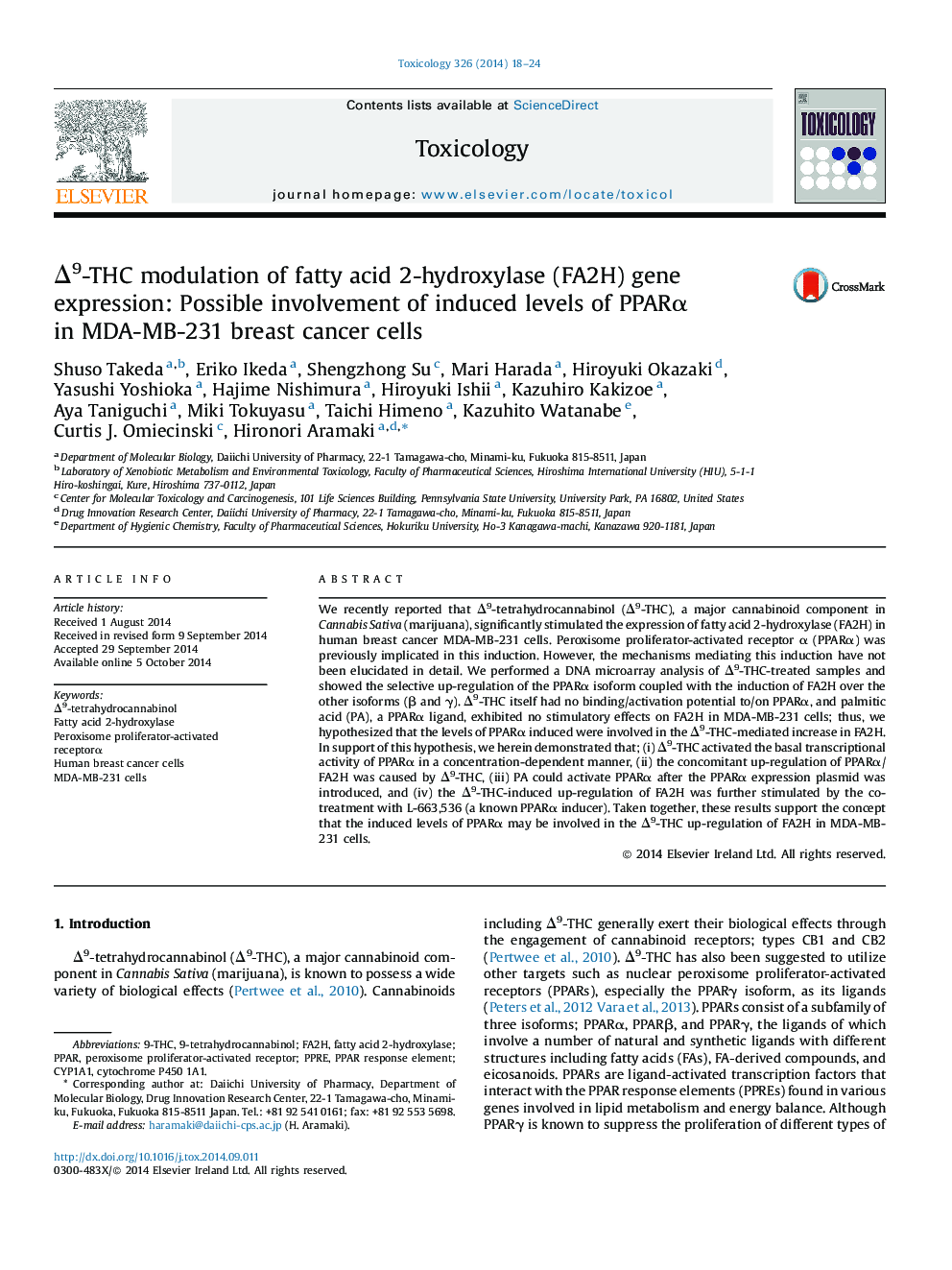| Article ID | Journal | Published Year | Pages | File Type |
|---|---|---|---|---|
| 2595502 | Toxicology | 2014 | 7 Pages |
We recently reported that Δ9-tetrahydrocannabinol (Δ9-THC), a major cannabinoid component in Cannabis Sativa (marijuana), significantly stimulated the expression of fatty acid 2-hydroxylase (FA2H) in human breast cancer MDA-MB-231 cells. Peroxisome proliferator-activated receptor α (PPARα) was previously implicated in this induction. However, the mechanisms mediating this induction have not been elucidated in detail. We performed a DNA microarray analysis of Δ9-THC-treated samples and showed the selective up-regulation of the PPARα isoform coupled with the induction of FA2H over the other isoforms (β and γ). Δ9-THC itself had no binding/activation potential to/on PPARα, and palmitic acid (PA), a PPARα ligand, exhibited no stimulatory effects on FA2H in MDA-MB-231 cells; thus, we hypothesized that the levels of PPARα induced were involved in the Δ9-THC-mediated increase in FA2H. In support of this hypothesis, we herein demonstrated that; (i) Δ9-THC activated the basal transcriptional activity of PPARα in a concentration-dependent manner, (ii) the concomitant up-regulation of PPARα/FA2H was caused by Δ9-THC, (iii) PA could activate PPARα after the PPARα expression plasmid was introduced, and (iv) the Δ9-THC-induced up-regulation of FA2H was further stimulated by the co-treatment with L-663,536 (a known PPARα inducer). Taken together, these results support the concept that the induced levels of PPARα may be involved in the Δ9-THC up-regulation of FA2H in MDA-MB-231 cells.
